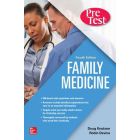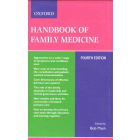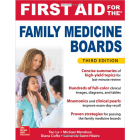Family Medicine
Family medicine is a specialty field in the medical profession which is focused on the provision of continuous care to patients and their family. Family physicians incorporate medical, biological, and behavioral knowledge in the provision of quality health care. Family medicine has a wide scope and can address ailments of different gender and age.
The medical profession and clinical practice have been continuously dividing into different specializations. In contrast, the practice of family medicine provides holistic care for an ongoing patient-physician relationship. A recent survey showed that one-fourth of patient’s initial visit includes going to a family physician. Family physicians render holistic care because they do not focus on a single body organ/system.
Goals and Objectives
The goal of family medicine is to change health care delivery so that everyone can attain optimal health. The family medicine association has formulated the following objectives for practicing and future family physicians.
- The family physician acts as the patient advocate that has the ability to influence and affect the delivery of health care by linking the public to the government and health care industry.
- The family physician will practice enhancement and rehabilitation medicine. The family physician aims to assist members to attain their goals.
- The family physician aims to promote an innovative and high-quality family medicine education to the members of the health care team who are also responsible for the family’s health.
- Th family physician strives to uphold the health of the public and to actively participate in conducting research that will contribute to advanced and evidence based family medicine.
Residency Training
Family physicians complete a three-year extensive training in six medical areas namely: surgery, community medicine, internal medicine, pediatrics, psychiatry & neurology, and obstetrics & gynecology. Included in the training is the ability to provide health care in both inpatient and outpatient setting. Family physicians are also trained to diagnose and treat illness that affects patients of all ages. Family physicians are specialized in preventive medicine. The main core and scope of family medicine is geared towards primary health care.
Scope of Practice
Physicians who are specialized in family medicine are trained to practice primary care and preventive medicine. Performing routine and annual check-ups are performed by family physicians as a part of primary care. By doing so, the risk of developing disease is decreased or eliminated. Family physicians are also skilled to perform health risk assessment. Immunizations are provided by physicians specialized in family medicine. The administration of immunizations is an important aspect of preventive medicine to reduce if not eliminates the risk of acquiring diseases with available vaccines.
As a part of primary care, family physicians also perform routine screenings in the community setting for early detection of different kinds of disease entity. Early detection is a cost effective method that leads to improved quality of life. Screening tests that could be done in the community setting includes breast disorders, diabetes, early stage hypertension, and metabolic disorders like obesity.
In summary, family physicians can render care in the following settings:
- Nursing homes
- Hospitals
- Community health center
- Emergency rooms
- Office practices
- University health centers



